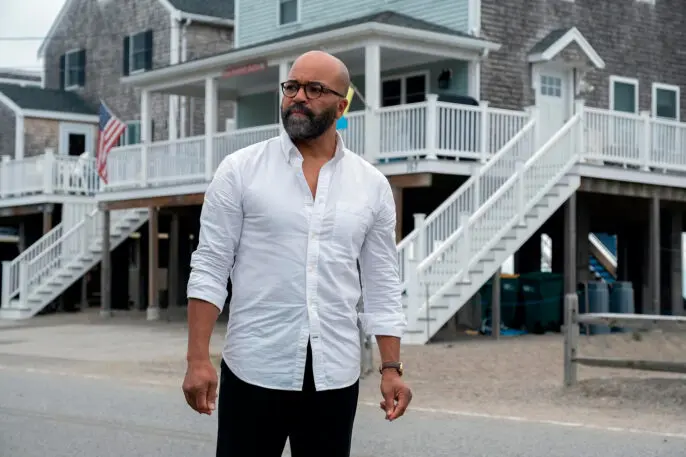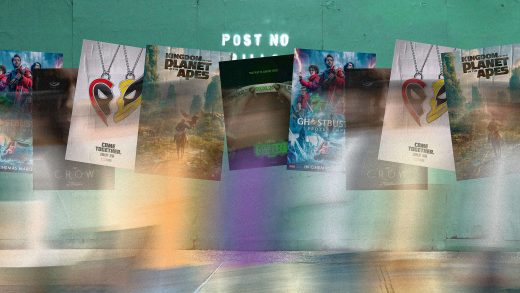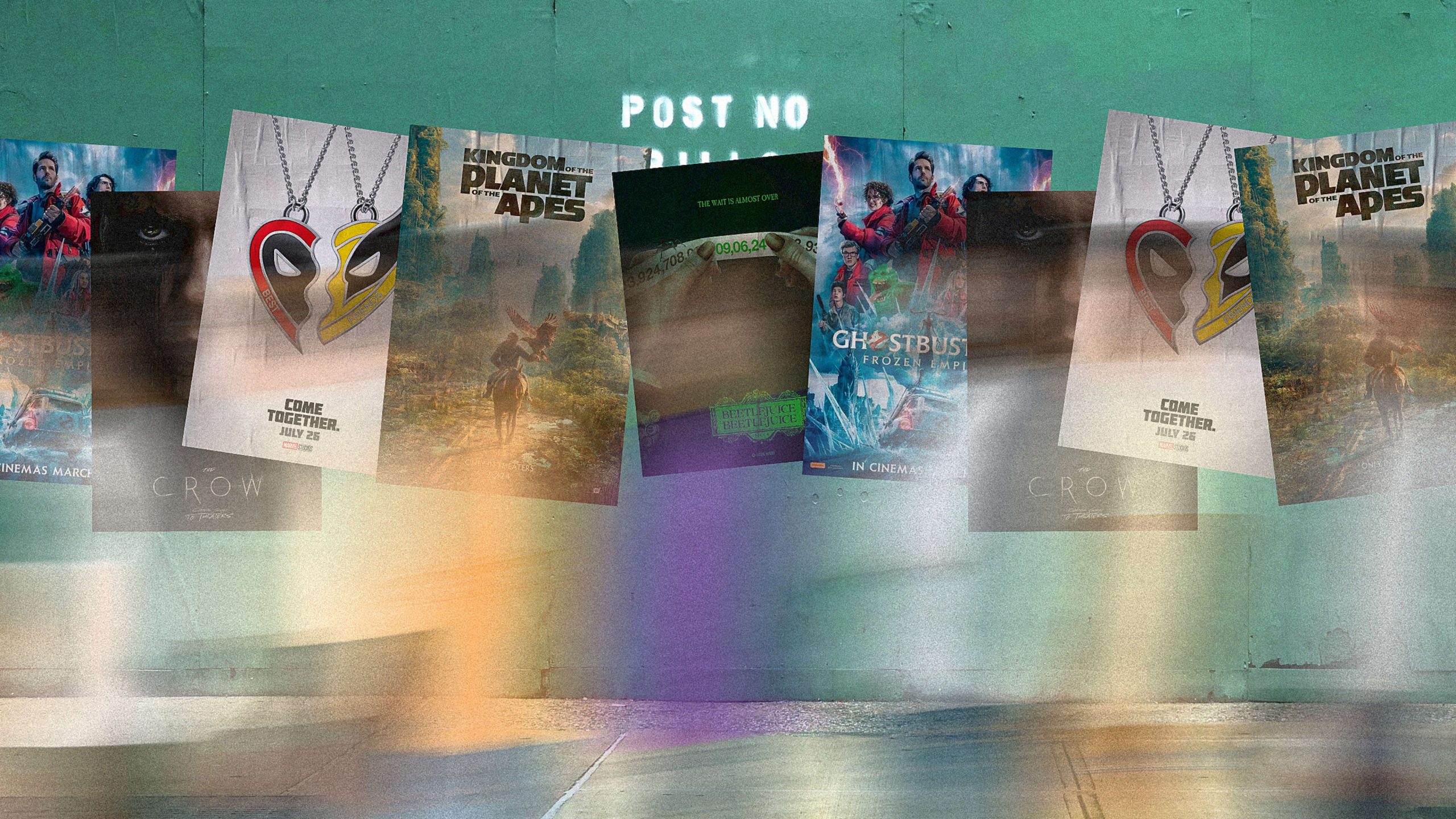Gen-Z just said it’s sick of remakes. Here’s why that’s bad timing for Hollywood
Gen Z just said it’s sick of remakes. Here’s why that’s bad timing for Hollywood
Younger audiences say they’re bored with sequels and reboots, just as Hollywood is calling Ghostbusters—and summoning Beetlejuice, Planet of the Apes, Bad Boys, and more.
Several weeks ago, I watched the first Hollywood flick in years that blew me away: The Creator by director Gareth Edwards. Before then, I had long stopped caring about or expecting much from most Hollywood films, which, despite their budgets of hundreds of millions of dollars often offer subpar special effects, scripts that make it seem like the studio gave up halfway through the writing process, and an obsessive overreliance on legacy sequels and existing IP.
I had no great hopes when I sat down to watch The Creator—it was just something my friend recommended. But I fell in love with it because it broke the mold Hollywood has been using to make its films for nearly two decades now. The Creator was a completely original, character-driven, well-written story; shot mostly on-location instead of in front of green screens; and, for a future-set sci-fi film, had an astonishingly small budget, of just $80 million, yet its visual effects looked more impressive and natural than anything Marvel has ever put out. No wonder it was nominated for Best Visual Effects at this year’s Academy Awards. (It lost, but to another ultra-low-budget, special effects marvel, Godzilla Minus One).

The Creator gave me something I haven’t felt for years: hope for the future of Hollywood. Hope that the industry might be ready again to trust in creatives who have new, smaller, original stories to tell and the vision to tell them. Hope that the era of unoriginal, bombastic amusement park spectacle films and legacy sequels might be on the way out.
I’m not alone. Last week, freemium streamer Tubi released the results of a survey it conducted with The Harris Poll revealing that 74% of Gen Z and millennials—the main audiences Hollywood relies on to fill theaters, according to data compiled by Statista—prefer original films to remakes. And 71% of those respondents said they want film and TV shows that are either “independent or from smaller creators.” In other words: at least 71% of the most reliable movie-going generations want anything other than what Hollywood has been giving them.
And it’s not just audiences. Creatives want Hollywood to stop the conveyor belt of generic big-budget spectacle, too. At this year’s Oscars, during his acceptance speech after winning the Acadamy Award for Best Adapted Screenplay for American Fiction, filmmaker Cord Jefferson called out Hollywood’s overreliance on big-budget blockbusters.

“I understand that this is a risk-averse industry—I get it. But $200 million movies are also a risk, you know . . .? But you take the risk anyway. . . . Instead of making one $200 million movie, try making 20 $10 million movies, or 50 $4 million movies,” Jefferson said. Numerous studios had passed on his film, which reportedly cost just $10 million to make. “I want other people to experience that joy [I felt making American Fiction], and they are out there, I promise you. The next Martin Scorsese is out there. The next Greta’s out there—both Gretas [Gerwig and Lee]. The next Christopher Nolan’s out there, I promise you. They just want a shot, and we can give them one.”
So, audiences and filmmakers are aligned. And yet the next six months are packed with big-budget spectacles, legacy sequels, and remakes.
This weekend, the newest legacy sequel opens: Ghostbusters: Frozen Empire. In April there’s a new entry in The Omen horror series. In May, there’s The Fall Guy, based on the 1980s TV series, and the umpteenth Apes installment, Kingdom of the Planet of the Apes. In June it’s Bad Boys 4, The Crow remake, Inside Out 2, and another Quiet Place. July will offer Despicable Me 4, a new Beverly Hills Cop, the legacy sequel Twisters, and yet another MCU movie (just stop), Deadpool & Wolverine. In August is a new Aliens movie. And in September comes the legacy sequel to Beetlejuice, starring Gen-Z fave Jenna Ortega.
And don’t get me started on streaming options: the world does not need yet another reboot or prequel or sequel to Harry Potter or The Lord of the Rings or Twilight. There are thousands of amazing books out there that deserve adaptations. (Jefferson’s America Fiction was an adaptation of the never-before-adapted novel Erasure by Percival Everett).
So why does Hollywood keep mining existing IP? One reason, as Jefferson pointed out, of course, is risk-aversion. A well-known title, no matter how dated, is still a safer bet than an unknown property in financiers’ eyes. Yet this kind of risk assessment may be becoming outdated, if the declining ticket sales of big-budget properties (I’m looking at you, MCU) are any indication. Indeed, Disney CEO Bob Iger recently admitted that the company needs to scale back its MCU offerings.
Another reason is that some in Hollywood may simply think that young audiences might not know the difference. How many Gen Z viewers actually are familiar with The Fall Guy ABC TV series from the 1980s? Probably very few––so at least that makes it seem somewhat original.
A decade ago, there wouldn’t be a week when I didn’t go to the movies during the summer. Now it’s rare that I’m even in a theater once during what is traditionally Hollywood’s biggest season. But here’s hoping the relative popularity of American Fiction and the originality and economical yet jaw-dropping special effects of The Creator and Godzilla Minus One (by Japanese entertainment giant, Toho)—combined with audiences’ increasing weariness of Hollywood’s big-budget churn—gives the industry a much-needed rethink about the types of films it green-lights.
ABOUT THE AUTHOR
Fast Company – co-design
(6)



